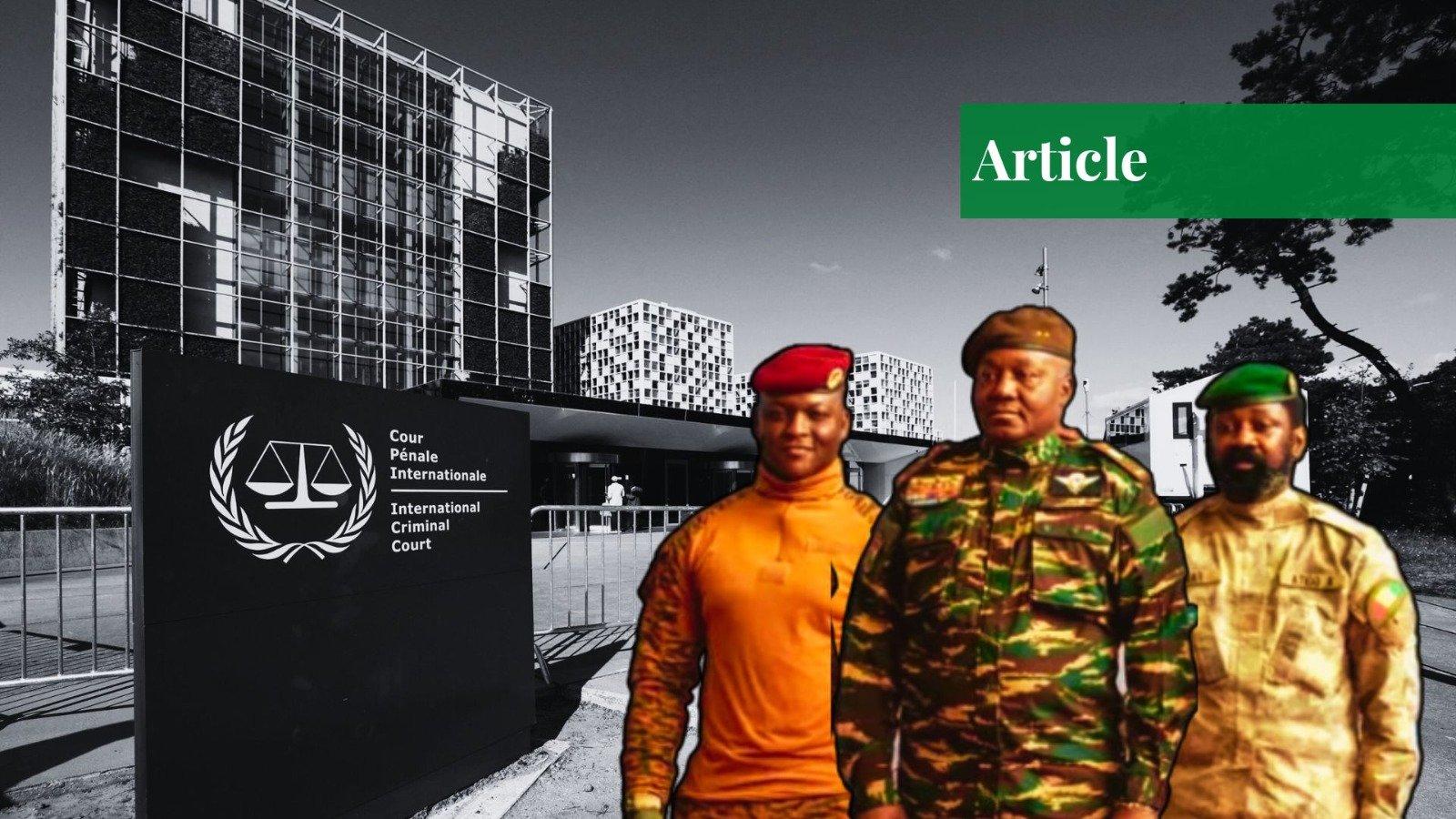Mali, Niger, and Burkina Faso declared their immediate withdrawal from the International Criminal Court and are seeking local judicial mechanisms. The ICC is the primary international institution to prosecute powerful individuals, such as state heads, and it has firm legitimacy to promote accountability and deliver justice to victims. The withdrawal and anti-African accusations by these states can hinder the ICC’s future efforts to promote universality.
Redefining Accountability in the Sahel Countries
On September 22, 2025, the military-run states of West Africa labeled the International Criminal Court as a tool created by powerful Western states to undermine the sovereignty of fragile African states and lacking credibility to prosecute atrocity crimes. These states experienced a history of colonial repression, now seek full sovereignty over their judicial systems. Sahel states have indicated their intention to substitute the ICC with local and indigenous judicial institutions while calling out the ICC for its selective justice. After military coups in Mali, Burkina Faso, and Niger (2021-2023), these states institutionalized the Alliance of Sahel States in 2024.
The withdrawal declaration by Burkina Faso, Mali, and Niger cannot be enforced instantly, as Article 127 of the Rome Statute states that such exits require one year after the notice is submitted. It cannot impact the ongoing ICC proceedings in the respective states, such as a pending arrest warrant for Iyad Ag Ghaly, who is considered as supreme leader of the jihadist organization Ansar Dine in Mali.
Shifting Alliances: From France to Russia
After military coups, the Alliance of Sahel States recently deepened its relations with Russia after years of strong foreign alignment with the former imperial power, France, leading to the departure of its 2,400 troops from Mali. The arrest warrant against Russian President Putin from the ICC for crimes against humanity in the Russia-Ukraine war is still pending. Moreover, the Russian paramilitary group Wagner, which coordinated with the military juntas in Mali and Burkina Faso to confront jihadist groups such as Al-Qaeda, was denounced by the Human Rights Watch 2024 report for its alleged crimes, including the killing of nearly 32 civilians in Mali. Recently, the Wagner mercenary group was succeeded by another Russian militia, the African corps in these states. Niger authorities allowed the Russian army to deploy at the Niamey airbase, where previously US forces were stationed.
A Western Tool to Control Africa?
What are the main reasons behind these states’ anti-African accusations against the ICC? In the first fourteen years after the ICC’s creation, it only pursued investigations in African states such as Mali, Sudan, and Kenya, and analysts called it the African Criminal Court. It would unintentionally build a global perception about the prevalence of atrocities in Africa. Even though most cases were referred by African states, some, such as the Darfur and Libya (2011) cases, were initiated by the UNSC, whose three permanent members, such as the US, Russia, and China, are not even ICC members. After extensive criticism, the ICC expanded its investigations beyond Africa, including in Afghanistan and Palestine, to foster universality. On March 11, 2025, former Libyan President Rodrigo Duterte surrendered to the ICC, highlighting that no region is exempt from the Court’s investigation.
ICC has prosecuted prominent leaders involved in war crimes during Mali’s 2012 dispute, such as sentencing Ahmad al-Faqi al-Mahdi, associated with the jihadist group Ansar Dine, to nine years in prison for the destruction of Timbuktu, Mali’s historic and sacred sites. Burundi’s exit in 2017, followed by the withdrawal of the Alliance of Sahel States, raised concerns about the ICC’s effectiveness in the African region. But the claims by the military-run states are oversimplified and pave the way for undermining global accountability.
ICC Withdrawal Endangers Civilians
In June 2025, the indigenous communities in Mali and Burkina Faso, such as the Tuareg group, brought a case before the ICC against their military forces for alleged war crimes against civilians since they came to power. Additionally, reparations for victims in the Al Hassan case would not proceed if Mali officially exits from the ICC. This move was condemned by various human rights organizations, such as Amnesty International and the International Federation for Human Rights, as it could undermine states’ accountability in the global arena. Mali, Niger, and Burkina Faso have announced plans to establish a regional criminal court to prosecute war crimes, which analysts view as a symbolic move to advance their military agendas.
A Setback to Africa’s Leadership
Africa has a long-standing history of supporting the ICC to provide fair justice to victims of atrocities and holding the perpetrators of war crimes accountable, because local courts may struggle due to politicization and limited judicial expertise. Africa is considered the leading region with 34 states explicitly supporting the formation of the ICC as a global avenue for justice. The withdrawal marked a step back from legal obligations and Africa’s landmark cooperation with the ICC. Moreover, these states’ exit from ECOWAS, a regional bloc, in January, introduced a gap between international and regional coordination.
Way Forward
The withdrawal declaration came at a time when the ICC is facing threats shaped by the political agendas of opposing parties. The US endorsed sanctions against ICC personnel to undermine its operations in Palestine. The ICC can only operate effectively with states’ cooperation in collecting evidence against suspects and in arresting perpetrators. Moreover, these military-junta governments have a history of oppression, which diminishes their credibility to guarantee unbiased justice. The demands for sovereignty by states can be exploited as a way to evade global responsibility, which can lead to authoritarianism.
The International Criminal Court must explain its legal procedures, priorities, and restrictions to uphold its legitimacy and mitigate the politicized accusations by the Alliance of Sahel States. There should be utmost cooperation between the African Union and the International Criminal Court to establish coordinated regional systems and curb the political influence of the UNSC’s permanent members in the court’s investigations. Moreover, states must reconsider their decisions, as urged by UN experts. These key steps are important for achieving lasting peace in Africa and beyond.
If you want to submit your articles and/or research papers, please visit the Submissions page.
To stay updated with the latest jobs, CSS news, internships, scholarships, and current affairs articles, join our Community Forum!
The views and opinions expressed in this article/paper are the author’s own and do not necessarily reflect the editorial position of Paradigm Shift.
Maryam Iftikhar completed her degree in International Relations at Kinnaird College for Women University, Lahore and is passionate about global politics, international law, and climate justice.



